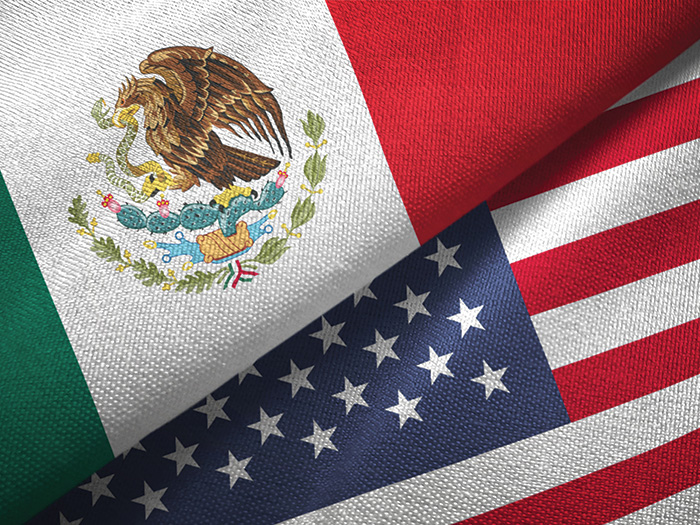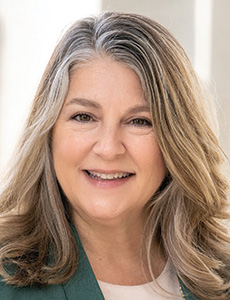Insuring Risks Beyond the ‘Frontera’: Mexican Companies Consider the Advantages of Captive Insurance — Via Vermont

Demand for captive insurance in Mexico has risen exponentially over the past 12 months, as the country’s businesses face a hard market in some lines.
That interest was stoked in March, when the State of Vermont and the Vermont Captive Insurance Association (VCIA) sent a delegation of government, regulatory and industry representatives, including members of the U.S. Department of Commerce’s U.S. Commercial Service, on a trade mission to Mexico City to raise awareness of captive insurance as a risk management solution and Vermont as a domicile.
Organizers of the meeting, which was originally scheduled for March 2020 but had to be delayed due to the COVID-19 pandemic, were buoyed by the event, which attracted 85 attendees, and they have already heard from Mexican companies looking to form a captive in Vermont.
Among those present were brokers and government and trade body representatives from the likes of manufacturing associations, who attended panel discussions and networking opportunities. During the event, they learned about the basics of captive insurance companies, reasons for their formation, the feasibility assessment process and the steps involved in putting a successful program together.
“We knew that Mexico was ripe for captive insurance and that the demand was there,” said Sandy Bigglestone, deputy commissioner for the State of Vermont’s Captive Insurance Division.
“The key for us was getting access to brokers and company decision-makers and educating them about the key benefits of forming a captive in Vermont.”
Raising Awareness of Captive Insurance
Bigglestone said that, despite a level of awareness among brokers about captive insurance, some attendees were still surprised to hear about the maturity of the captive industry and Vermont’s standing as a leading domicile. But by presenting them with facts and figures supporting their case, she said, they were able to build greater awareness and dialogue.

Sandy Bigglestone, deputy commissioner, Captive Insurance Division, State of Vermont
Interest in and uptake of captives by Latin American companies generally has increased in recent years, and more are doing their own research into formations, attending conferences and industry events and sitting on panels. The demand for captives has been driven by hard insurance markets and the need for greater capacity and loss control.
In Mexico specifically, there are a host of industries interested in captive insurance, ranging from manufacturing, property development, banking and financial services to energy, transportation and telecommunications. The most in-demand risks they are looking to insure are property, health care, financial lines and cyber liability.
“Mexico’s insurance marketplace has a lack of capacity,” said Bigglestone. “That makes captives the ideal solution to fill those gaps and enable companies to better control their premiums and risks.”
Vermont already has two Mexican captives on its books. The first is for América Móvil — Latin America’s largest telecom operator, which was formed in 2008 — a representative of which spoke at the event. The other was established late last year.
It has also gained two new prospects: One has already carried out a feasibility study, and the other has expressed an initial interest in forming a captive.
Vermont as a Natural Fit
Given that the U.S. is Mexico’s largest trading partner and is in a similar time zone, and that many Mexican companies have multiple risks they need to insure in the U.S., Vermont is a natural fit as a captive domicile for those businesses. And because of the lack of specific captive insurance laws and the complexity of forming a captive in Mexico, companies based there are forced to look further afield.
“The Latin American market is greatly underserved when it comes to insurance,” said Kevin Mead, president of VCIA.
“Unlike Europe, there are few captive insurance options in the region, so Vermont’s experience in dealing with captive formations for non-U.S. entities and the comparatively open market makes it a good fit.”
Mead said that, previously, captives had only been used as “tax shelters” for high-net-worth individuals, rather than by corporations looking to fulfill an insurance need. So when the Mexican companies learned that they could use a captive as a risk management tool, that grabbed their interest.
“I have already had people calling me up asking who at the State of Vermont they should be contacting for preliminary discussions about forming a captive,” said Mead. “It’s early days, but the interest is certainly there.”
Many of the attendees at the Mexico City event plan to attend the VCIA Annual Conference in August to learn more about Vermont as a domicile and to meet with service providers on the ground. Vermont will also be running a series of webinars to keep them abreast of the latest developments in captive insurance.
Positive Feedback
Among the organizations represented at the March event was the National Council of the Maquiladora and Export Manufacturing Industry, a Mexican group that represents more than 1,300 global companies that are beneficiaries of the IMMEX program, which enables foreign companies to operate in the country under a preferential low-cost tax structure and comprises 62% of Mexico’s total exports.
Its general director, Susana Duque Roquero, commended Vermont for its work in raising awareness of its captive insurance offering to the Mexican market.
“The presentation and business breakfast of ‘strategic advantages of captive insurers’ in Mexico City provided a broad overview about the captive insurance industry with experts that encouraged discussion about the strategic advantages,” Roquero said.
“It was a very necessary first approach for many of us, because we are more familiar with the traditional insurance schemes.
“The decades of experience in financial, insurance and regulatory matters, as well as their CPAs and certified financial examiners, gives the State of Vermont a plus in considering them as one [of] the leading captive insurance domiciles,” Roquero added.
“Our export manufacturing industry could benefit from considering a regulated form of self-insurance that is created, owned and controlled by its insureds. The most attractive thing is the control and management of their own risks.” &








